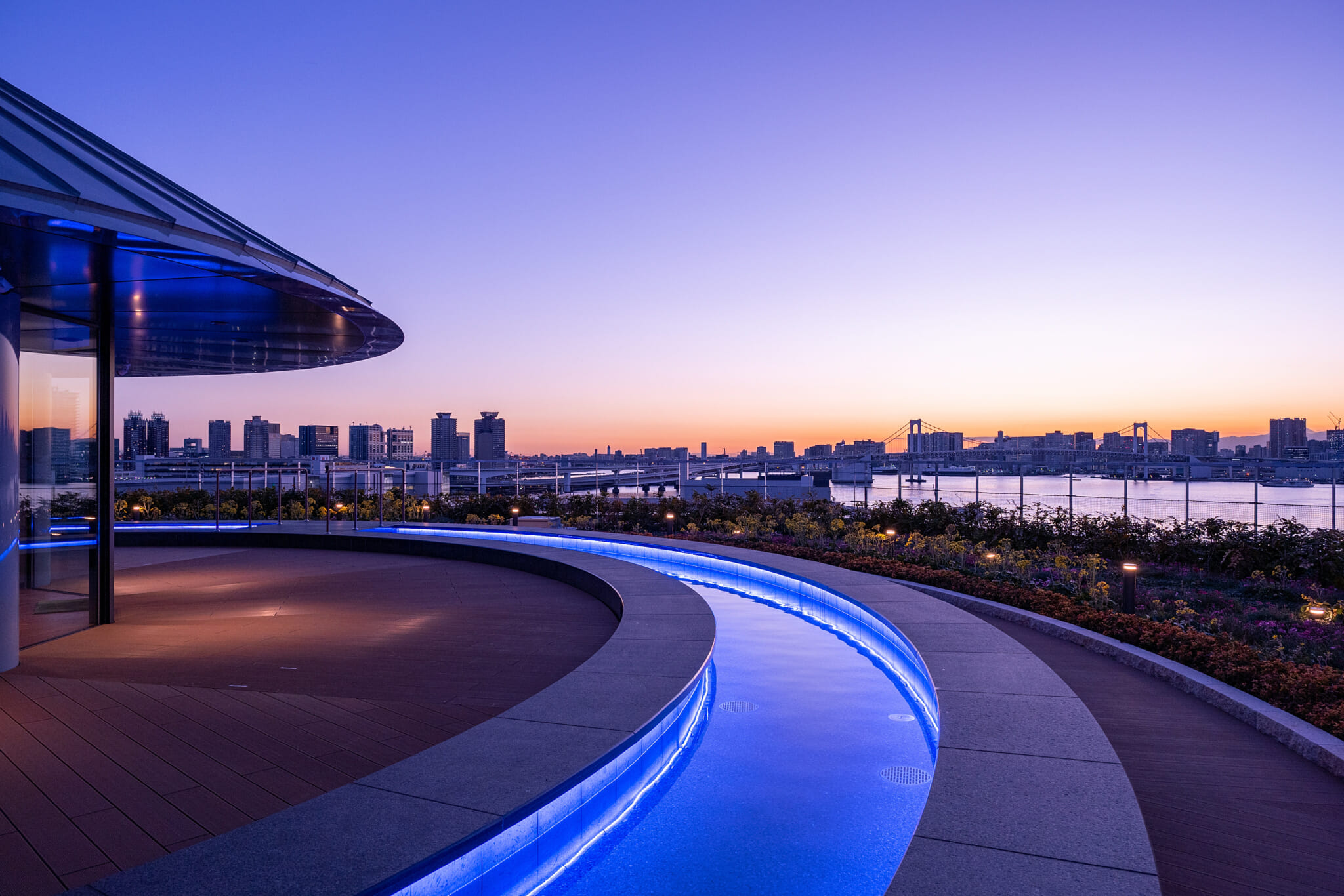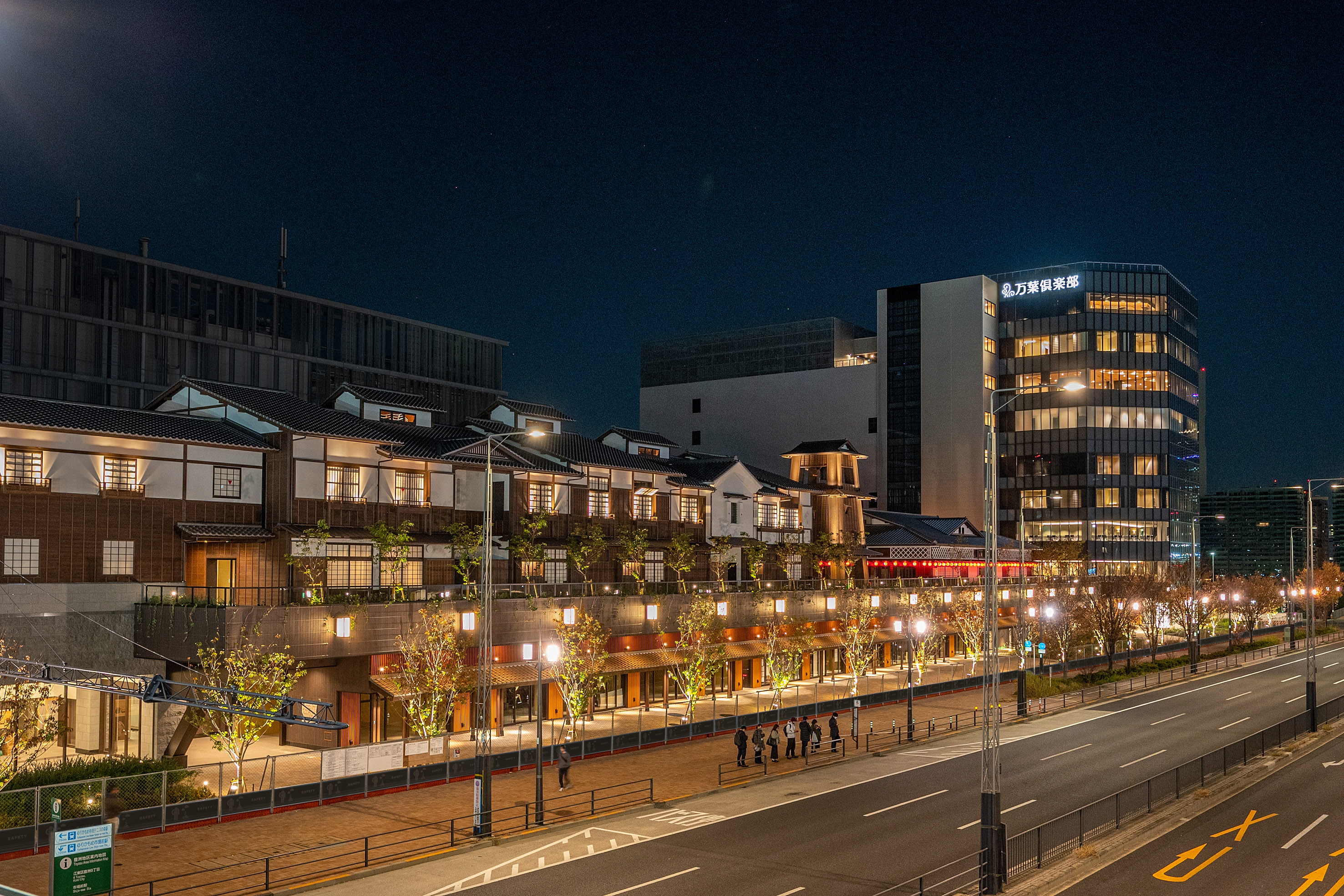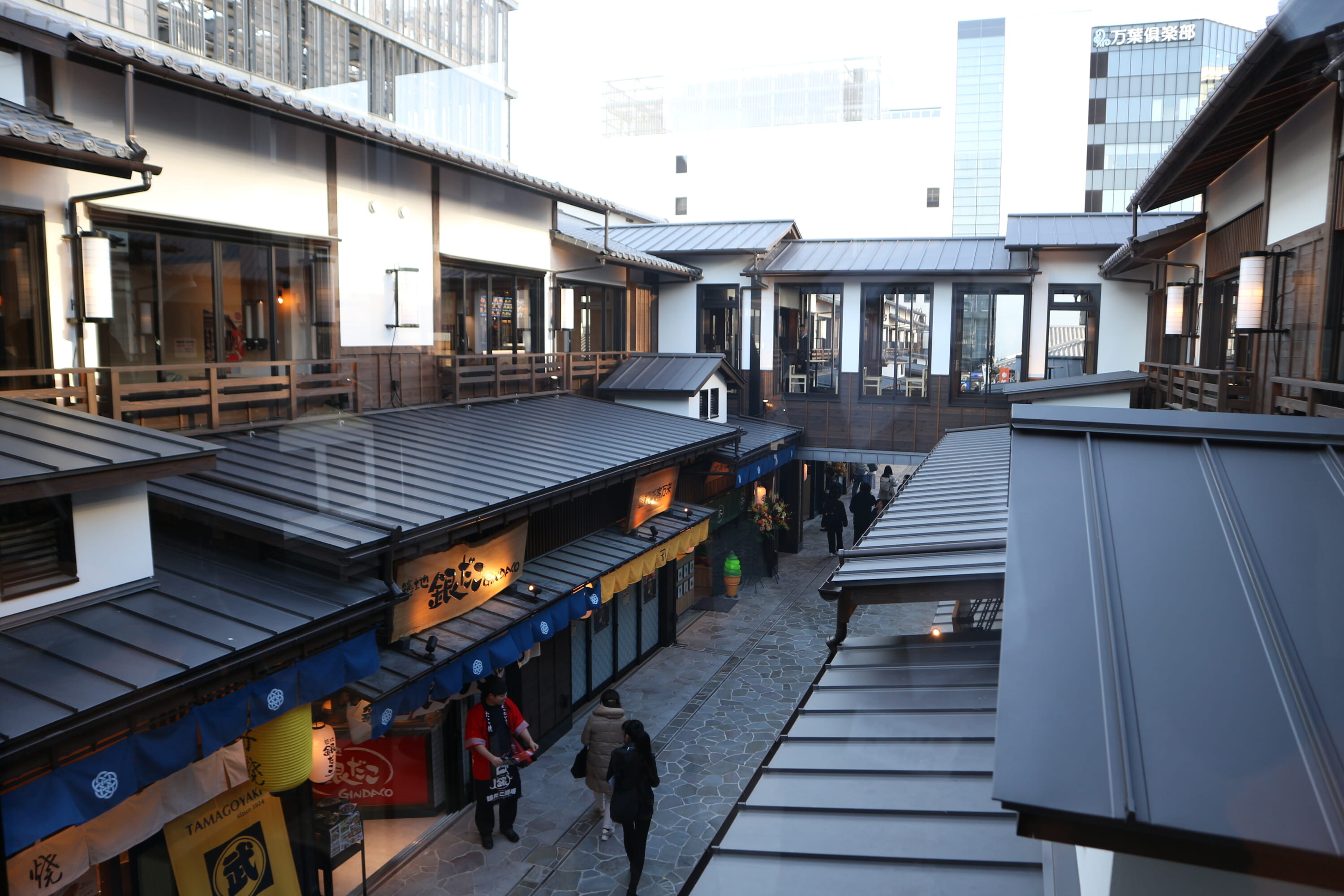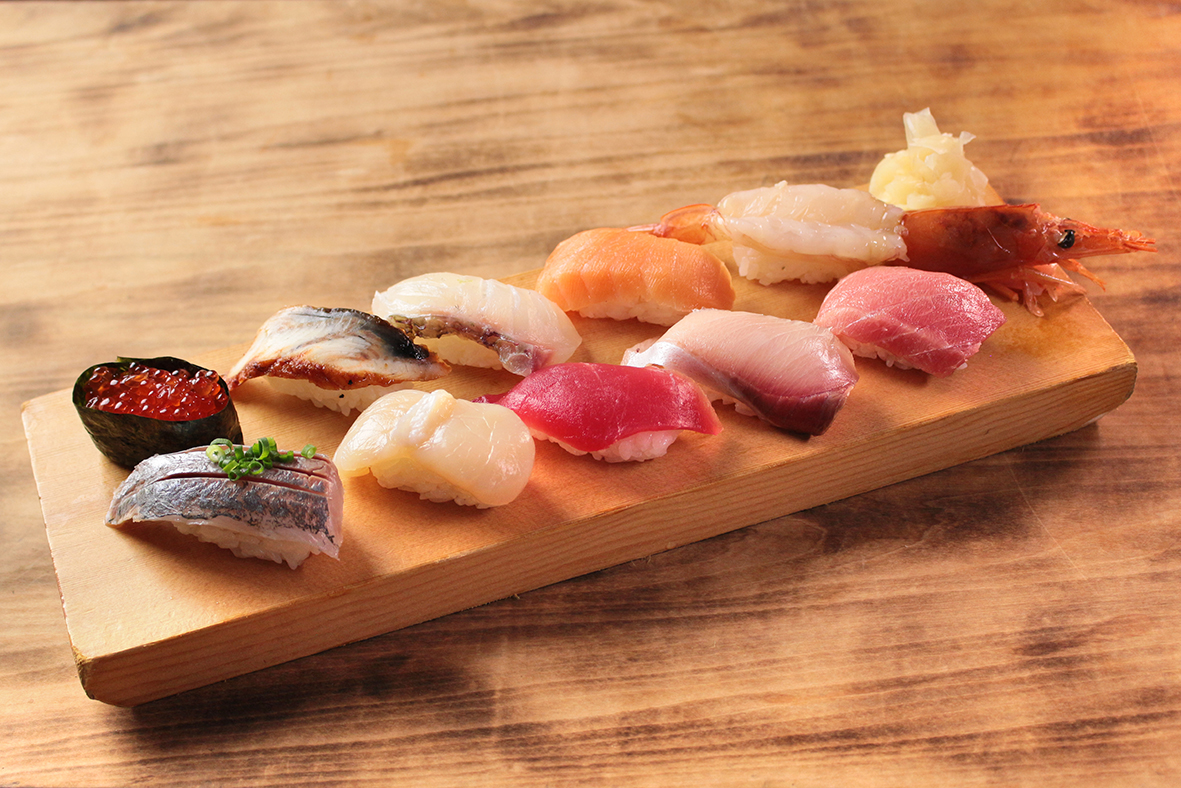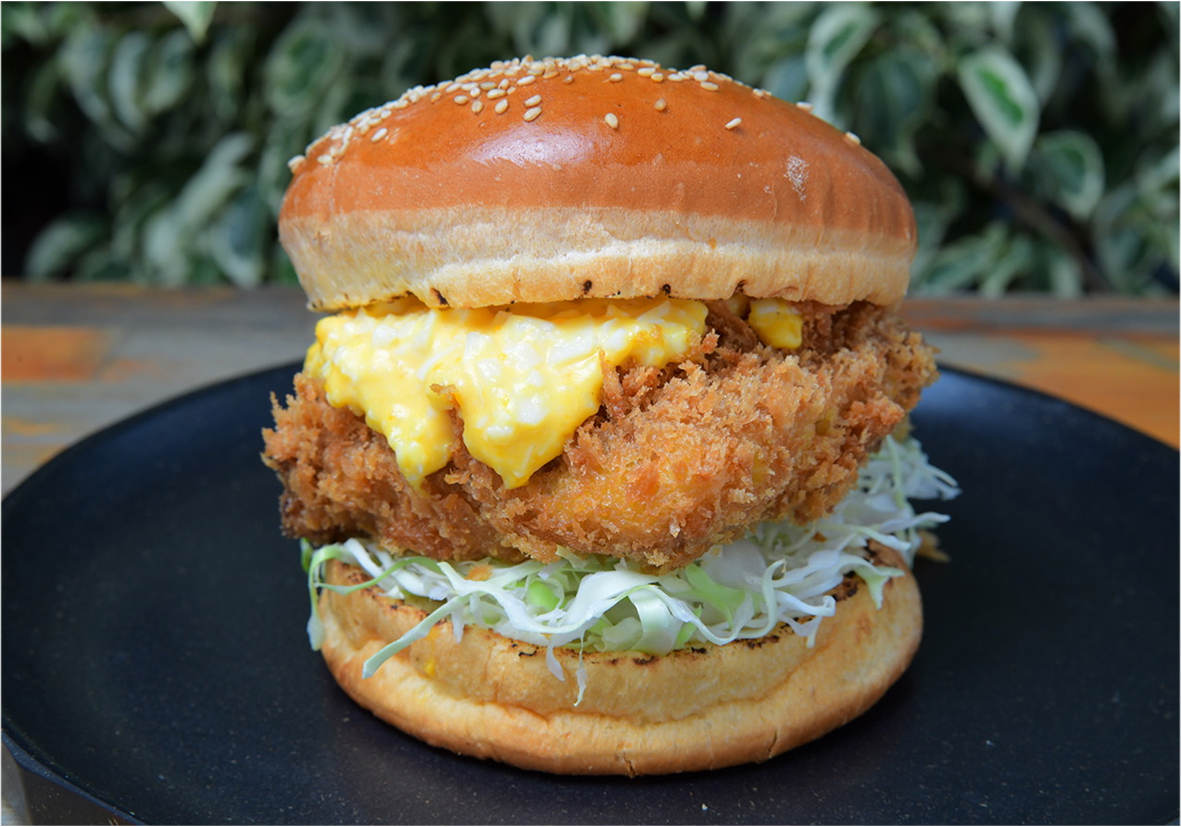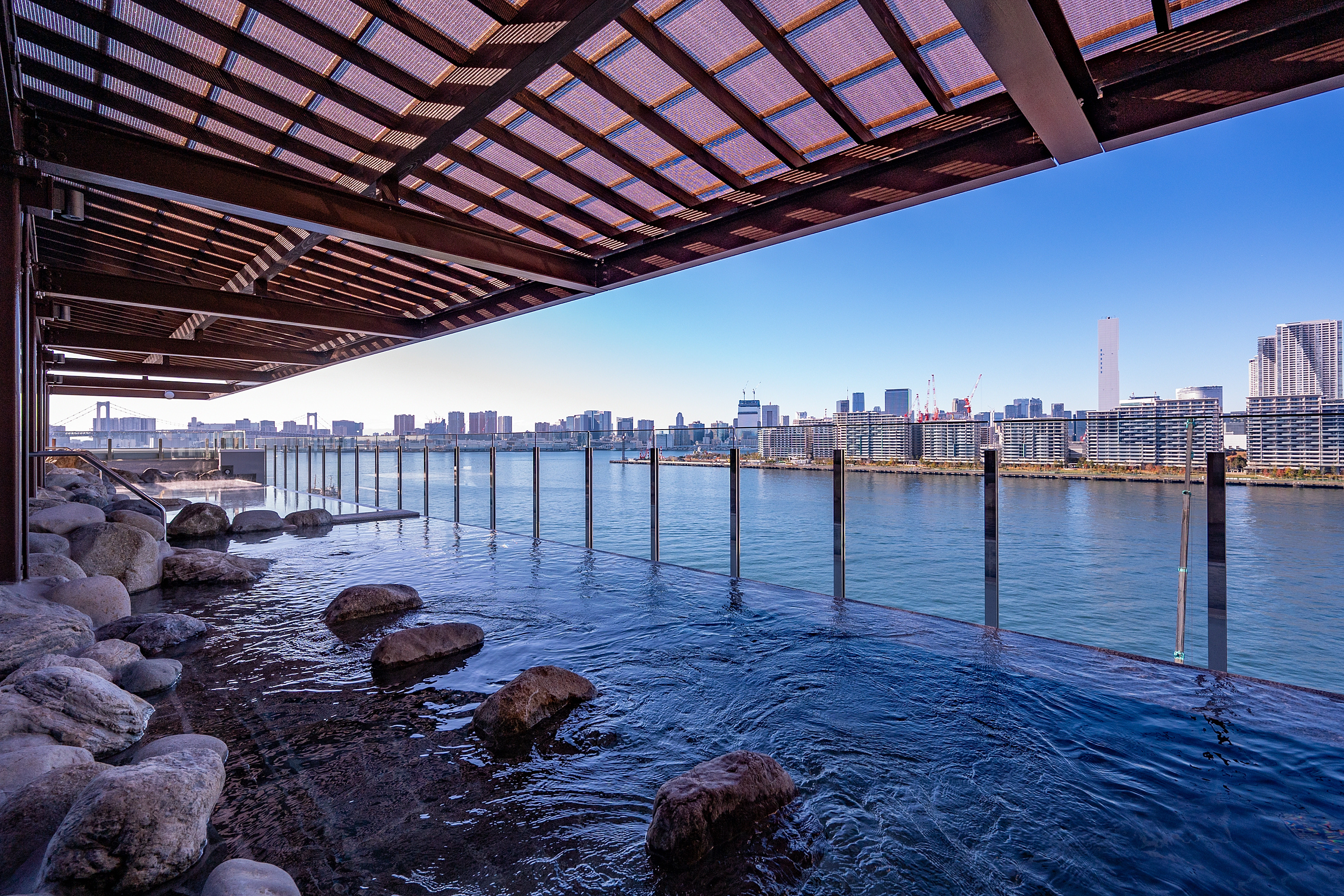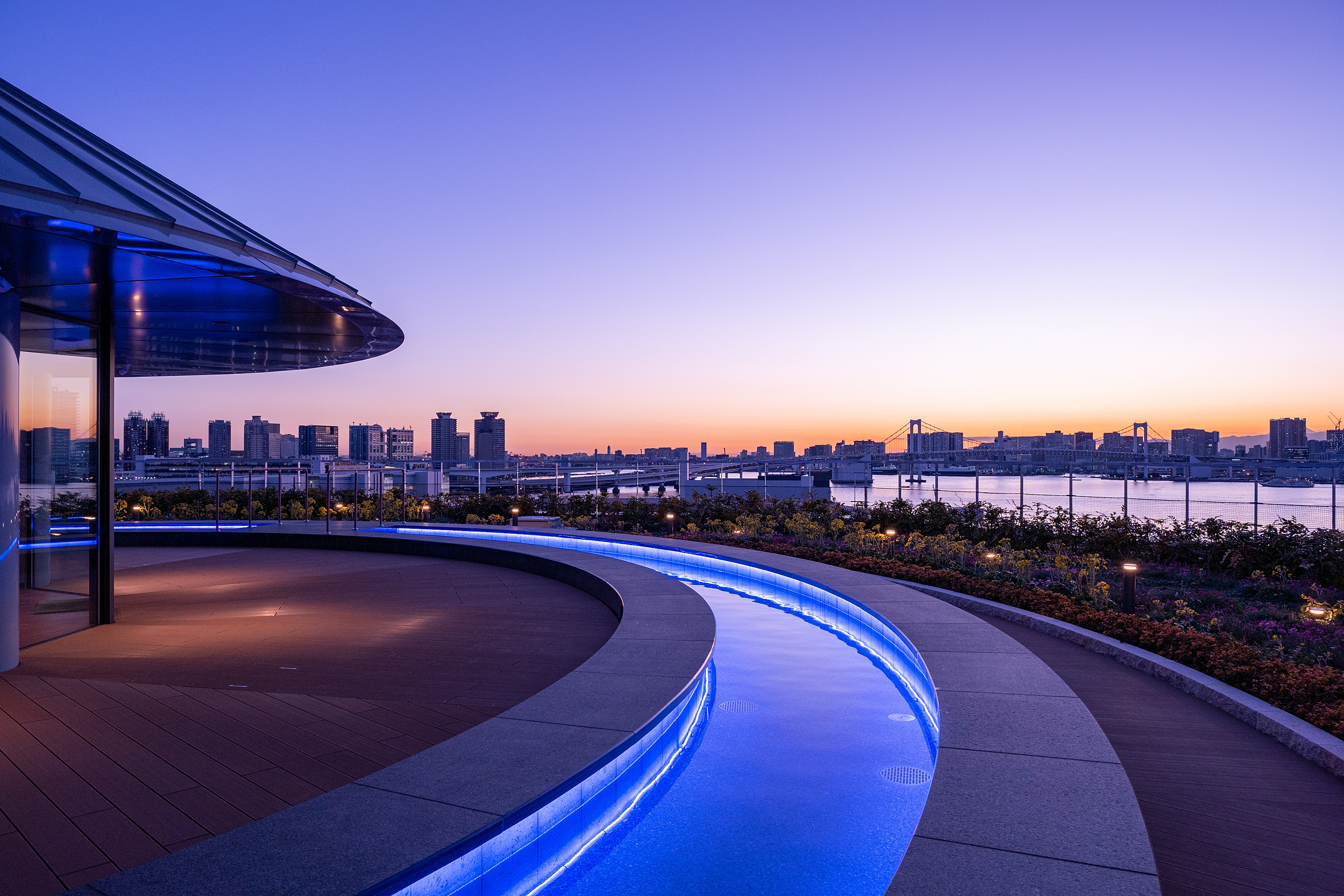In 2018, the Tsukiji Fish Market, or “Japan’s Kitchen,” as it is sometimes known, was moved from its original location in Chuo ward, where it had been since the Great Kanto earthquake of 1923, to Toyosu, in Koto ward. From February 2024, the Toyosu fish market area is expanding its offerings with the Tokyo Manyo Club, a 24-hour onsen and hotel facility, as well as the Toyosu Senkyaku Banrai, a varied assortment of restaurants and shops selling fresh produce.
Toyosu Senkyaku Banrai Dining and Shopping Complex
Easily reachable via the Yurikamome Line, or directly by bus from Haneda Airport for international visitors, the Toyosu Market Complex sits astride Tokyo Bay, just a few minutes’ walk from Shijo-mae Station. Designed in the style of classical Edo period streets, the Toyosu Plaza houses an array of traditional Japanese restaurants (seafood, yakiniku, monjayaki). It also boasts the stately Toki no Kane (translated to Bell of Time), which rings periodically throughout the day.
In the bustling indoor alley, named the Mekiki Yokocho, there are over 34 food and souvenir stores available, where visitors can sample all manner of delectable dishes, from sea urchin rice bowls to seafood burgers. Ramen, poke bowls and, of course, sushi, are all on offer at the third floor food court. Once a month, guests are also invited to watch a tuna filleting show at Iroha, the buffet-style sushi restaurant here.
Tokyo Manyo Club: Onsen and Hotel
As you walk through Toyosu Plaza and the Mekiki Yokocho, you come to the entrance of the Manyo Club. Despite its location in the heart of Tokyo, the Manyo Club prides itself on providing its visitors with the same restorative experience that you might have while sojourning in one of Japan’s luxurious onsen towns, nestled in the heart of the mountainous countryside. In fact, the water that fills the baths here is transported from two of Japan’s most revered onsen locations: Hakone and Yugawara. Two to three times a day, up to 60 tons of this fresh onsen water, known for its velvety texture and skin-beautifying properties, is delivered to the Manyo Club to supply the baths.
There’s a day pass for the Manyo Club that costs ¥3,850 and gives you access to the indoor and outdoor onsen, as well as the rooftop foot bath, replete with panoramic views of the city. With a number of different saunas to choose from, including a dry sauna and a salt sauna, the complex is adeptly equipped to provide its visitors with a relaxing and rejuvenating experience. For an additional ¥1,500, the hot stone spa is also available for use, featuring three types of bedrock rooms in which guests can sweat out everyday aches and pains while enjoying spectacular views of the city.
For those wishing to make a weekend out of the experience, there are 70 rooms available for overnight stays. After all, staying here makes it easier to wake up early to see a fish market auction.
Toyosu Fish Market: Wholesale and Fish Auctions
At the heart of Toyosu is its wholesale fish market. The largest in the world, the Toyosu Fish Market features a formidable range of both products and sellers, providing produce for the finest restaurants, eateries and chefs across the country. In addition to Japanese fish, the market also distributes fish from New Zealand, the United States and Spain, to name but a few.
Following the relocation from the former site at Tsukiji, the facilities of Toyosu Market have also been upgraded and modernized. It’s now fully indoors and the temperature of the market can be controlled around-the-clock, ensuring that the produce is consistently at its most fresh and hygienic. Every day, an average of 200 fresh tunas and 1,000 frozen tunas are sold, with a kilogram of fish sold on average for between ¥3,000 and ¥15,000.

While the early start isn’t easy, visitors to Toyosu are invited to the market viewing deck to witness the tuna auction commence from 5.30 a.m. every morning. If you visit the Toyosu Market homepage, you are also able to enter the lottery to become one of the 100 people per day who can observe this process up close.
Prior to the auction commencing, experts undergo an ancient process of mekiki, by which they determine the quality of the fish using a system of predetermined hand gestures, referred to as teyari. According to Yasuhiro Yamazaki, president of Yamaharu, the largest intermediary wholesaler at Toyosu, there is a certain star quality that determines the fish of the greatest quality, which he likens to a sparkle in one’s eye. This year, a particularly fantastic tuna was sold for a record ¥114 million marking the culmination of the market’s yearly proceedings on January 5.
With an extraordinary array of fish bought and sold every day, from sea urchin to maguro and yellowtail, the wholesale process at Toyosu Market is a cornerstone of Japanese trade, setting a world standard for fish distribution across the globe.

